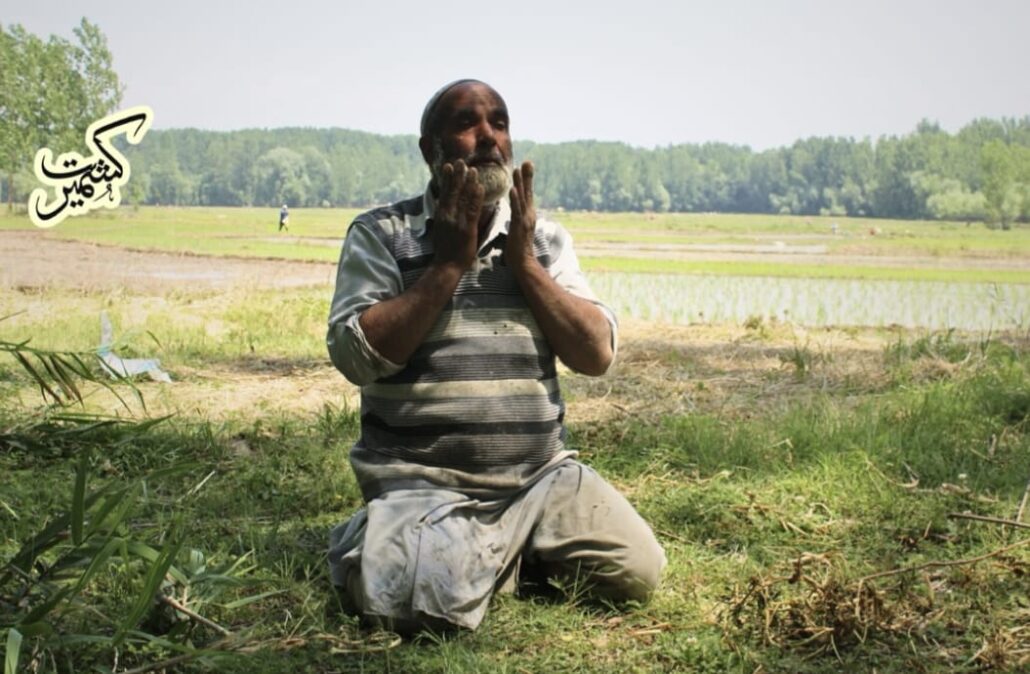
Sheikh Nadeem/ Danishwar Hameed
Suffering losses for the last five years, the paddy and apple farmers from the Kashmir valley have expressed disappointment over the union budget released on July 23, 2024 by Union Finance Minister Nirmala Sitharaman.
Farmers from the valley said that the budget has completely “ignored” the farming sector and did not address the demand for a legal guarantee of the minimum support price (MSP), a demand that has been made by the farmers constantly for the past several years.
Sitharaman announced a ₹1.52 lakh crore allocation for agriculture and allied sectors for 2024-25, detailing plans to boost research, promote sustainable farming, increase oilseed and pulse production, and integrate technology into agriculture.
In her Budget speech, Sitharaman emphasized the need for a comprehensive review of the agricultural research framework to enhance productivity and develop climate-resilient crop varieties, however, farmers unions across the country including Kisan Tehreek criticized the Budget, stating that the farming sector had been completely “ignored.”
“People had high expectations. This was the first budget after their election debacle, but it seems that the Bhartiya Janta Party has learnt no lessons. From the last five years, We have been incurring losses. From paddy farmers to apple growers, everyone is burdened with losses and we have been demanding KYC loan waivers, but there is not any farm loan waiver in the Budget,” Kisan Tehreek said.
He added that there was no scheme in the budget for the development of the agricultural sector, claiming, “People were also expecting that the cost of agricultural products would be reduced, but it is a directionless and disappointing budget. It does not have any vision for the agriculture sector which employs nearly 50 per cent of the Indian population.”
One of the biggest demands of Kashmiri farmers has been the establishment of Mandis for walnuts and other popular products from the valley within the valley. “We have appraised the issue with the government several times, but it seems that the issue has been ignored yet again,” Malik said.
Farmers who have been stationed at the Shambu and Khanauri border points between Punjab and Haryana since February 13, after being halted by security forces also expressed disappointment in the budget. Samyukta Kisan Morcha (Non-Political) leader Jagjit Singh Dallewal noted that the ₹1.52 lakh crore allocated for the agriculture sector constituted nearly three percent of the total budget.
Dallewal remarked, “The Centre has been consistently ignoring the farming sector. The share of the agriculture sector in the total budget should have been higher.”
Another farmer leader, Harmeet Singh Kadian in a tweet expressing disappointment over the budget said, “No loan waiver, no diversification package, no agro-export, no agro-industrial package, and no budget to legalize MSP.’
“Climate change is a major issue. It has had an adverse impact on our agricultural sector, unfortunately the government has ignored the issue like all the issues common people face. There is bare minimum to address the climatic change. This is a pro-corporate budget. The digitization and new technologies will just benefit the corporate friends of the BJP, but for the problems faced by the farmers and the people of Jammu Kashmir, the budget is a complete flop,” Malik, who is also the vice president of Apple Federation of India told The Kashmiriyat.
Meanwhile, CPI(M) leader, Mohammad Yousuf Tarigami criticized the Union Budget presented in parliament on Tuesday, stating that it fails to address the significant challenges faced by the people of Jammu and Kashmir, who are enduring severe economic distress.
He emphasized that Kashmir’s economy is heavily dependent on agriculture, yet the budget remained silent on this crucial sector. He further highlighted the lack of relief for fruit growers, pointing out that the government is importing apples from foreign countries while the locally grown produce in Jammu Kashmir is left to rot in storage.
“Such facilitation for foreign produce while neglecting local apples is putting growers in dire straits,” Tarigami said.




